Cheng Li writes that at a time when male-dominance in political leadership is being challenged in many parts of the world, the PRC public is likely to take greater notice of the gender imbalance within China’s political elite. This piece was originally published in China-US Focus. The Chinese translation can be found here.
With this past weekend’s election of Carrie Lam Cheng Yuet-ngor (林郑月娥) as Hong Kong’s first female chief executive, women now lead two of the three societies making up so-called “Greater China” (the Mainland, Taiwan, and Hong Kong). A trifecta remains unlikely, as it would take a miracle for a woman to become head of the People’s Republic of China (PRC) in the foreseeable future. Yet, at a time when male-dominance in political leadership is being challenged in many parts of the world, the PRC public is likely to take greater notice of the gender imbalance within China’s political elite.
An analysis of the representation of woman leaders in China is particularly important and timely as the Chinese Communist Party (CCP) prepares for its once-every-five-years leadership change at the 19th Party Congress this fall. About 70 percent of the 376 members on the Central Committee are expected to depart in order to make way for newcomers. The Politburo and its all-powerful Standing Committee will experience similarly high rates of turnover. At this important juncture, what is the status of –– and what are the prospects for –– women leaders in China’s elite politics? Will the percentage of women leaders in top leadership bodies increase at the 19th Party Congress? Which female rising stars are on the path to the upper echelons of Chinese politics?
Since the founding of the PRC in 1949, Chinese authorities have frequently trumpeted the CCP’s careful attention to women’s issues. However, female representation in the party leadership has generally remained negligible. With the exception of the 10th Party Congress in 1973 and the 11th Party Congress in 1977, women have never made up more than 10 percent of the total membership of the Central Committee. Only a handful of female leaders have ever served in the Politburo. Most were wives of top leaders, such as Jiang Qing (江青, Mao’s wife), Ye Qun (叶群, Lin Biao’s wife), and Deng Yingchao (邓颖超, Zhou Enlai’s wife). Throughout CCP history, no woman has ever served on the Politburo Standing Committee (PSC).
For the first time since the end of the Cultural Revolution, the current Politburo (formed at the 18th Party Congress in 2012) includes at least two women –– the vice-premier, Liu Yandong (刘延东, born in 1945), and the head of the Central United Front Work Department, Sun Chunlan (孙春兰, b. 1950). Even so, female representation decreased from 10 percent on the 17th Central Committee to 8.8 percent on the 18th Central Committee. The decline in female full members was even more significant: from thirteen (6.4 percent) on the last Central Committee to ten (4.9 percent) on the current one.
At least one (Liu Yandong) and perhaps both of the current female Politburo members will retire at the 19th Party Congress due to age limitations. Among the other eight women leaders with full membership on the Central Committee, former minister of justice Wu Aiying (吴爱英,b. 1951) has already retired. Shen Yueyue (沈跃跃, b. 1957), vice chair of the National People’s Congress (NPC), and Song Xiuyan (宋秀岩, b. 1955), chair of the All-China Women’s Federation, both were once rising stars known as tuanpai officials because of their Chinese Communist Youth League (CCYL) backgrounds. But now both of them seem to have little chance for further promotion due to their unfavorable factional identity.
Four other full members all hold leadership posts that are not traditional stepping-stones for further political promotion: Chair of the All-China Federation of Supply and Marketing Cooperatives Wang Xia (王侠, b. 1954), Party Secretary of the Chinese Literature and Art Association Zhao Shi (赵实, b. 1953), Chair of the China Writers Association Tie Ying (铁凝,b. 1957) and Executive Deputy Procurator General of the Supreme People’s Procuratorate Hu Zejun (胡泽君, b. 1955). In addition, Zhao and Hu are both seen as tuanpai leaders, further dimming their promotion prospects.
Perhaps the only woman candidate among the current full members of the Central Committee who could potentially gain a Politburo seat at the 19th Party Congress is Li Bin (李斌, b. 1954), the minister of the National Health and Family Planning Commission. A Manchu, Li Bin advanced her early career as a teacher in Jilin Province and later served as vice governor of Jilin and governor of Anhui. Among the 25 ministers in the State Council, Li Bin is currently the only woman. It has been widely perceived that Li Bin is a protégé of Premier Li Keqiang.
Of the 23 female alternate members of the 18th Central Committee, some have already moved into ceremonial positions and one (former deputy party secretary of Beijing Lu Xiwen, 吕锡文, b. 1955) was recently purged on corruption charges. Most of these alternate members have remained in the same province or have worked in the same sector for many years, meaning that they are poorly positioned for fast-track promotions, which often require more-frequent reshuffling and broader leadership experience.
There are, of course, a few exceptions. For example, Hunan Deputy Party Secretary Wulan (乌兰, b. 1962, Mongolian) advanced her career in Inner Mongolia as CCYL secretary, vice governor, and propaganda head—in that order—before taking her current post in Hunan in 2016. The newly appointed secretary of the All-China Women’s Federation, Xia Jie (夏杰,b. 1960, Hui), advanced her early career in Heilongjiang, where she served as deputy head of the Organization Department and head of the United Front Work Department in the Heilongjiang Provincial Party Committee. (She was promoted primarily by then governor Li Zhanshu). She later served as head of the Organization Department of the Henan Provincial Party Committee. The new Ningxia governor, Xian Hui (咸辉, b. 1958, Hui), previously served as executive vice-governor of Gansu. Interestingly enough, all of these female leaders are ethnic minorities.
At present, out of China’s 31 provincial level administrations, no woman serves as a provincial or municipal party secretary –– the most important stepping-stone to a Politburo seat. Only two women serve as governors: the aforementioned Xian Hui and the governor of Inner Mongolia, Buxiaolin (布小林,b. 1958), who is also an ethnic minority. Buxiaolin is not among the 23 women who are alternate members of the 18th Central Committee.
As Xi Jinping prepares to begin his second term as general secretary of the CCP, many expect that he will further consolidate his power by appointing numerous protégés and like-minded associates into the national leadership. Unsurprisingly, most of these well-experienced and well-positioned political rising stars are men. This does not necessarily mean Xi and his team have completely ignored the necessity of fostering their own cohort of promising female leaders. For example, Cao Shumin (曹淑敏, b. 1966), an alternate member of the 18th Central Committee and the former president of the China Information and Communication Research Institute, was recently appointed to be mayor and party secretary of Yingtan City, Jiangxi Province. Cao was instrumental in the establishment of China’s fourth-generation mobile communication system (technically known as Time Division Long Term Evolution, or TD-LTE). In a highly publicized event in January 2017, Xi Jinping met with Cao and praised her contribution to China’s cyber space development. With newly acquired leadership experience in running a medium-sized city, Cao will likely play an even more important leadership role in the near future. A similar example is Chen Xu (陈旭, b. 1963), the party secretary of Tsinghua University. Chen has been a top leader at this highly prestigious and politically powerful university—and Xi Jinping’s alma mater—for over a decade, and she is expected to move into the national leadership in the near future.
Given that the CCP leadership has such a limited pool of women leaders from which to choose for higher offices, the number of female leaders in the 19th Politburo is highly unlikely to increase in any significant way. Cao and Chen will, at best, become full members on the Central Committee this fall. Institutional rules and norms prevent them from advancing their careers any faster. Although the PRC party-state system has successfully incorporated a broader range of backgrounds and viewpoints over time, China lags behind global trends in elevating female leaders. Unless Xi and the CCP leadership prioritize vigorous institutional reforms to address this issue now, the insufficient representation of women leaders will remain a notable deficiency of the PRC party-state system for the years to come.
The Brookings Institution is committed to quality, independence, and impact.
We are supported by a diverse array of funders. In line with our values and policies, each Brookings publication represents the sole views of its author(s).

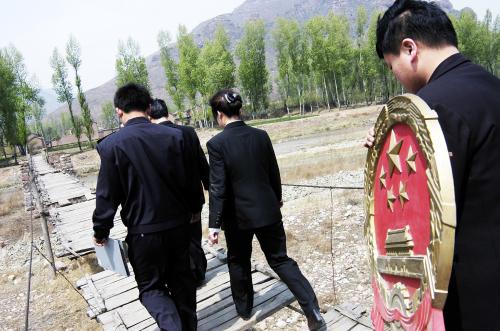
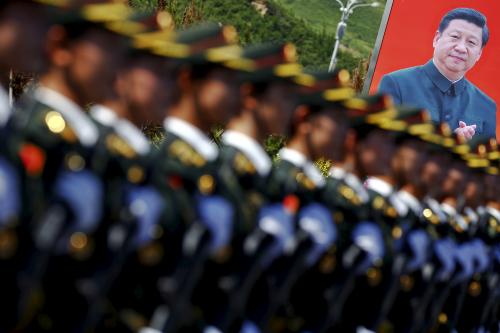
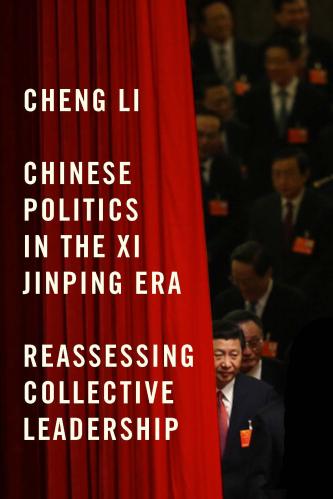


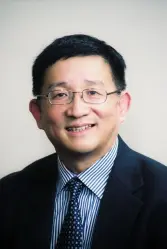
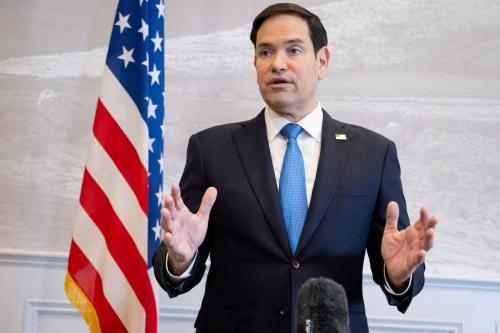

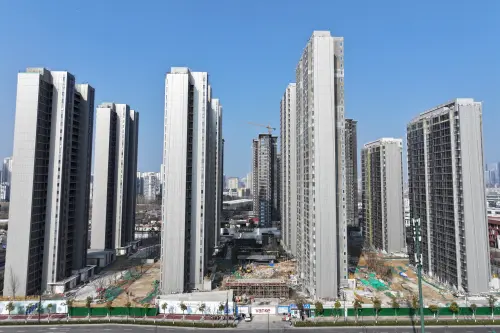
Commentary
Op-edStatus of China’s women leaders on the eve of 19th Party Congress
March 30, 2017